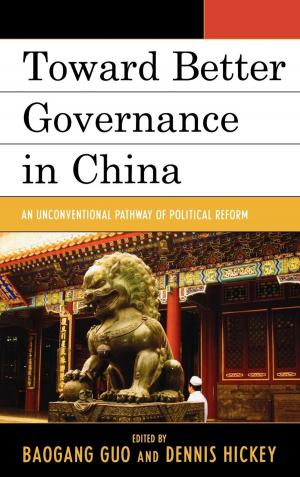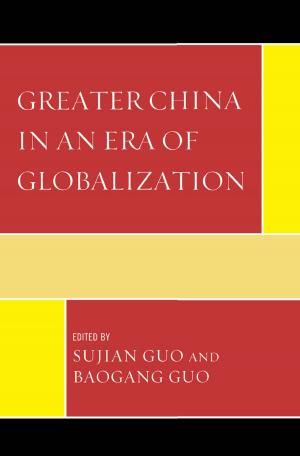Searching for Marx in the Occupy Movement
Nonfiction, Social & Cultural Studies, Political Science, Government, Communism & Socialism, Democracy, Social Science| Author: | John Leveille | ISBN: | 9781498548434 |
| Publisher: | Lexington Books | Publication: | November 22, 2017 |
| Imprint: | Lexington Books | Language: | English |
| Author: | John Leveille |
| ISBN: | 9781498548434 |
| Publisher: | Lexington Books |
| Publication: | November 22, 2017 |
| Imprint: | Lexington Books |
| Language: | English |
Searching for Marx in the Occupy Movement is a critical, participant observation study of the Philadelphia branch of the Occupy Wall Street movement. John Leveille spent over nine months with Occupy Philadelphia as the members organized and carried out their protests. This book describes and analyzes the rise, the organization, and the demise of this group. The important events and activities of Occupy Philadelphia are discussed and dissected, with specific attention given to the confusions and chaos that permeated this group, and Occupy Wall Street more generally, which contributed to its rather rapid decline. A revisionist Marxism, informed loosely by the critical theory of the Frankfurt school, is used here to understand and explain the happenings of this protest group. The theory provides an epistemological and methodological framework for this study, and it is also used to account for the observed behaviors. Leveille argues that an essential conflict between humanism and the forces of rational capitalism lies at the heart of this protest movement. This conflict contributed both to the rise of Occupy and to its operations. It was manifested in two intersecting ways. One of these concerns the destabilization of the self in contemporary capitalism, which provided fuel for the movement. The second revolves around the limited abilities of existing institutional arrangements to manage or channel the essential conflicts related to values that are produced by rational capitalism. Ultimately, Searching for Marx in the Occupy Movement makes a controversial claim that the movement was as much, if not more, about democracy, morality, and the organization and experience of the self and of social life as it was about economic matters. The argument is made that Occupy was as much an expressive movement as it was an instrumental one. It was expressing contradictions produced by capitalism through extra-institutional means because the existing institutional arrangements have been and continue to be unable to manage or contain them.
Searching for Marx in the Occupy Movement is a critical, participant observation study of the Philadelphia branch of the Occupy Wall Street movement. John Leveille spent over nine months with Occupy Philadelphia as the members organized and carried out their protests. This book describes and analyzes the rise, the organization, and the demise of this group. The important events and activities of Occupy Philadelphia are discussed and dissected, with specific attention given to the confusions and chaos that permeated this group, and Occupy Wall Street more generally, which contributed to its rather rapid decline. A revisionist Marxism, informed loosely by the critical theory of the Frankfurt school, is used here to understand and explain the happenings of this protest group. The theory provides an epistemological and methodological framework for this study, and it is also used to account for the observed behaviors. Leveille argues that an essential conflict between humanism and the forces of rational capitalism lies at the heart of this protest movement. This conflict contributed both to the rise of Occupy and to its operations. It was manifested in two intersecting ways. One of these concerns the destabilization of the self in contemporary capitalism, which provided fuel for the movement. The second revolves around the limited abilities of existing institutional arrangements to manage or channel the essential conflicts related to values that are produced by rational capitalism. Ultimately, Searching for Marx in the Occupy Movement makes a controversial claim that the movement was as much, if not more, about democracy, morality, and the organization and experience of the self and of social life as it was about economic matters. The argument is made that Occupy was as much an expressive movement as it was an instrumental one. It was expressing contradictions produced by capitalism through extra-institutional means because the existing institutional arrangements have been and continue to be unable to manage or contain them.















